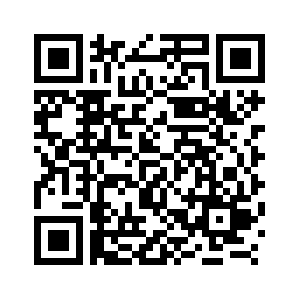BEIJING, May 16 (Xinhua) -- The United States has long abused sanctions to "punish" other countries and formed cliques to promote a "pseudo-multilateralism," arbitrarily undermining the authority and effectiveness of the global trading system.
Its actions have severely damaged international trade rules and the multilateral economic and trade order. These actions could potentially harm the world economy, including the United States.
"A BISON ON THE RAMPAGE"
Under the slogan "America First," the United States has put its domestic laws above international rules and exerted long-arm jurisdiction over other countries for its benefit.
Citing so-called "national security concerns," former U.S. President Donald Trump's administration in 2018 unilaterally imposed a 25-percent tariff on steel imports and a 10-percent tariff on aluminum imports under Section 232 of the Trade Expansion Act of 1962, which has drawn strong opposition at home and abroad.
In October 2022, the United States upgraded export controls on semiconductors and other sectors to China. This February, its bullying extended to companies in Japan and the Netherlands.
As of fiscal year 2021, more than 9,400 sanctions imposed by the United States had been implemented, said a report by the U.S. Department of the Treasury.
"The 'America First' policy is like a bison on the rampage," said Evandro Menezes de Carvalho, head of the Center for Brazil-China Studies of the Getulio Vargas Foundation School of Law in Brazil.
The United States has adopted "an act of the underworld" by restricting overseas economic activities of its own companies, constantly escalating export controls and coercing other countries to join it in sanctioning other countries, said Kiyoyuki Seguchi, research director at Japan's Canon Institute for Global Studies.
SMALL-CIRCLE MULTILATERALISM
Instead of backing true multilateralism based on the principles of the UN Charter and international order, the United States has gripped pseudo-multilateralism, which serves the interests of a small clique or political bloc.
The United States has contradicted itself by claiming that the so-called "Indo-Pacific Economic Framework" launched in May 2022 would promote regional cooperation, stability, prosperity, development and peace. In reality, it would re-establish U.S. economic leadership in the region and work to relegate China to the sidelines.
In the eyes of Muhammad Asif Noor, director of the Islamabad-based think tank Institute of Peace and Diplomatic Studies, the framework seeks to undertake unilateral measures to create parallel economic systems and manipulate the global supply chains.
From the Build Back Better World initiative put forward at the 2021 G7 summit to "help narrow the 40+ trillion dollars infrastructure need in the developing world" to its rebranding in June 2022 -- the Partnership for Global Infrastructure and Investment initiative -- to mobilize 600 billion U.S. dollars in public and private funding for developing countries by 2027, few U.S.-driven aid programs have proven trustworthy.
On the pretext of "opening up," the United States has embellished such initiatives to serve its own geopolitical purposes. Its investment pledges have turned out to be nothing but empty promises.
"For both Republican and Democratic administrations, it seems that multilateral institutions will be supported or created when they can assist in the furtherance of America's policy objectives; otherwise they will not," according to the book "U.S. Hegemony and International Organizations."
"GREAT IRONY"
It is a "great irony" that the United States, the "driving force" behind the creation of the Appellate Body of the World Trade Organization (WTO), has caused it a significant setback, said Raj Bhala, Brenneisen distinguished professor at University of Kansas Law School.
The multilateral trade arbitration body faced an unprecedented crisis in December 2019 when the United States blocked the selection of judges, suspending the Appellate Body. This paralyzing action exposed the multilateral trading system to a grave threat. At a meeting of the WTO's dispute settlement body in February, a proposal by 127 WTO members to restart the process of selecting new judges for the appellate body was again rejected due to U.S. objections.
The United States has always prioritized "instrumentalism" when it comes to international rules. Regardless of the creator of the rules, recognition by the majority of countries, or the United States' own commitments and obligations, the country will discard them if they interfere with its pursuit of self-interest and maintenance of hegemony.
A WTO report showed that the United States is its most unruly member, causing two-thirds of all WTO violations.
"When it enacts trade and industrial acts or policies, it considers only its own interests and disregards the interests of other countries," said Moatasem Rashed, a veteran economic consultant for the Egyptian Federation of Investors Associations.
These policies will backfire on the United States itself, he said. ■



